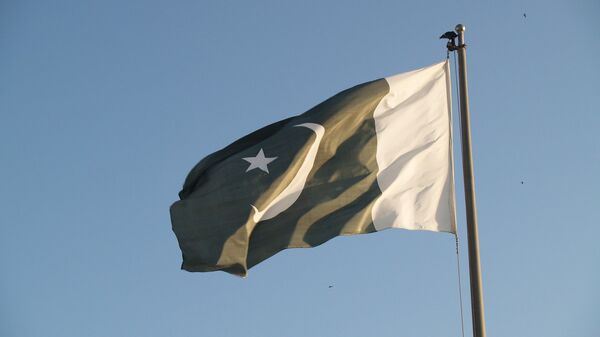New Delhi (Sputnik): Paris-based international terrorism financing watchdog Financial Action Task Force (FATF) continues to maintain that Pakistan falls short of meeting the 27 action points necessary to be removed from its “Grey List” and avoid blacklisting.
The “Grey List” contains the names of those countries which the FATF judges to be non-cooperative in the global fight against money laundering and terrorist financing.
A weeklong plenary session of the FATF is taking place in Orlando, Florida. On Thursday, the FATF will address the grey listing of Pakistan among other issues. India is pushing to blacklist Pakistan, as it believes Islamabad is a state sponsor of terror.
Pakistan's Prime Minister Imran Khan has cautioned that if Pakistan does not meet the global anti-terror goals, it will face FATF blacklisting.
Sputnik talked to two Indian security analysts -- Dr. Ajay Sahni, Executive Director of the Delhi-based Institute of Conflict Management (ICM), and Brigadier (Retired) Rahul Bhonsle on how India should respond to these latest developments.
Sputnik: How should India's government view Pakistani Prime Minister Imran Khan’s statement that if Pakistan does not meet its anti-terror goals, it faces blacklisting from the Paris-based Financial Action Task Force (FATF)?
Dr Ajay Sahni: I don’t think we should be too excited by things like this. Because what happens is that every time the FATF meets, Pakistan makes the same assurances again and again, and they are given an extension to the deadline. Pakistan has shown no inclination, as such, to meet the requirements in reality, apart from the complete neglect of the FATF requirements.
Sputnik: Pakistan claims that it is complying or making sincere attempts to comply with the FATF demands.
Ajay Sahni: Even if they do comply, the compliance is formal and notional. They may ban some parties; transfer their resources to other entities, but these parties continue to operate freely, their leadership are free to operate. Even if their leadership are placed under arrest or detention, they are placed under a very peculiar system of open arrest where they may meet their cadres; they have full freedom of operation.
Sputnik: How should we view or assess these formal constraints on Pakistan by the international community?
Ajay Sahni: We should not see too much in store (for Pakistan under) these formal constraints that the international community seems to impose on Pakistan unless there are strong punitive measures, and of course, if the FATF acts with its full force, Pakistan will be under complete sanction. But the FATF has not shown the will to act on those full powers which it has.
Sputnik: The FATF is having its plenary session in Orlando, Florida. It is looking at ways to prosecute terrorist financing globally. How should India be looking at this development?
Ajay Sahni: The FATF already has very significant powers. If it doesn’t show the will or capacity to use those powers, it makes no difference to add a little more international legislation to the whole thing. As it is, the global judicial body has proven to be extremely ineffective, highly politicised, and extremely limited in their targeting. Some of the major violators of international law go free; other small players who are powerless are vindictively pursued.
So international agencies, even if they have the appearance of being judicial bodies, are actually political bodies and they reflect the political dominance of certain entities, or groups of entities. Ultimately it will come down to one fundamental issue – if you can’t protect yourself, no one else is going to (do it for you). That is the reality of global politics.
Sputnik: Pakistan has been found wanting in 25 out of the 27 FATF action points. Isn’t it?
Brigadier Rahul Bhonsle: We have to wait for the final report of the FATF. Once the report comes out, only then will we be able to comment on how much Pakistan has complied or not complied. We have to wait see what is the outcome of that to make a proper assessment.
Pakistan has been on the FATF’s “Grey List” since early 2018. Last June, Islamabad committed to working with the FATF to strengthen its mechanisms for combating money laundering and terror financing. Pakistan and the FATF had, at the time, mutually agreed on a 10-point action plan with specific deadlines.
The views and opinions expressed in this article are solely those of the speakers and do not necessarily reflect those of Sputnik



